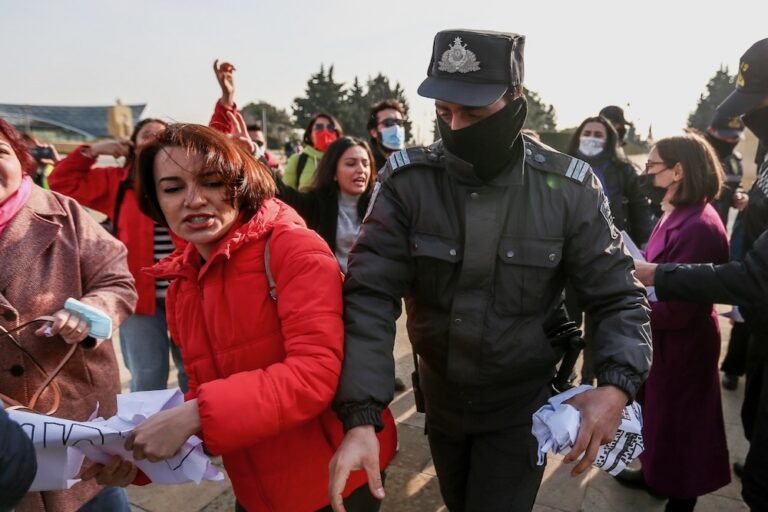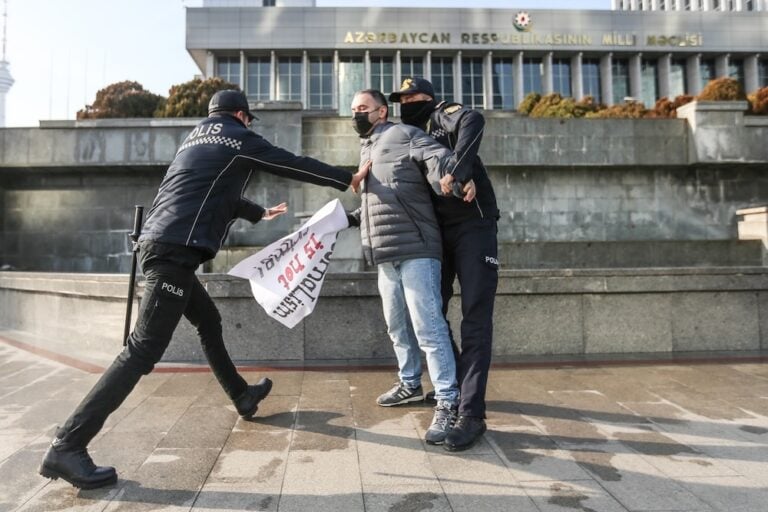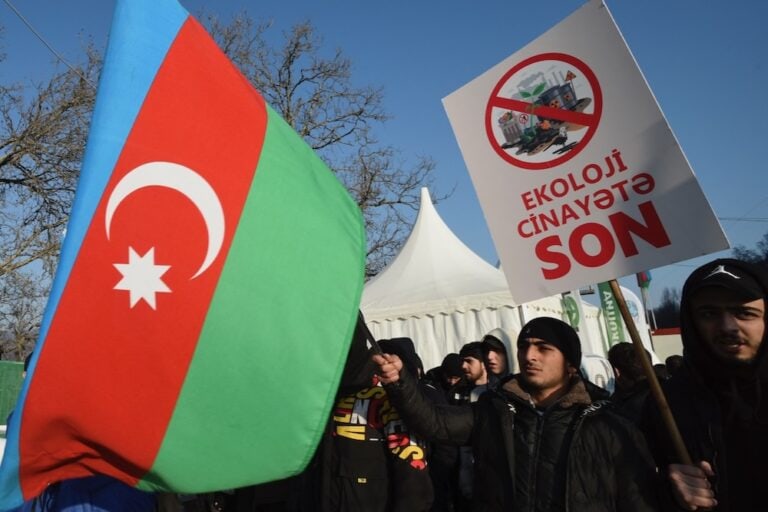(IPI/JuHI/IFEX) – The following is an IPI and JuHI joint press release: Vienna, 20 July 2000 Azerbaijan Press Freedom Workshop organised by International Press Institute and Journalists’ Trade Union On the occasion of the Azerbaijani National Press Day, 22 July, the International Press Institute (IPI) and the Azerbaijani Journalists’ Trade Union (JuHI) are organising a […]
(IPI/JuHI/IFEX) – The following is an IPI and JuHI joint press release:
Vienna, 20 July 2000
Azerbaijan Press Freedom Workshop organised
by International Press Institute and Journalists’ Trade Union
On the occasion of the Azerbaijani National Press Day, 22 July, the International Press Institute (IPI) and the Azerbaijani Journalists’ Trade Union (JuHI) are organising a press freedom workshop in Baku on 20 July.
The workshop will address the many obstacles facing press freedom in Azerbaijan. At the reception, prizes will be awarded to journalists in recognition of their commitment to press freedom. In a statement sent to the JuHI, IPI Director, Johann P. Fritz, recognised the perils facing journalists in Azerbaijan, calling them “true heroes” for conducting their work in spite of efforts by the authorities to silence critical voices. The Workshop is the latest in a series of initiatives undertaken by IPI in partnership with JuHI.
In April 1999, IPI and JuHI jointly launched a campaign that secured the release of journalist Fuad Gahramanli. Mr. Gahramanli was serving an 18-month prison term for writing articles the government labelled “a call to social disorder”. As a result of the campaign, the sentence was commuted and Mr. Gahramanli was released in July 1999.
Currently, IPI, the Committee to Protect Journalists (CPJ) and JuHI are involved in an international campaign to overturn unjust court decisions against journalists and newspapers in Azerbaijan and the abuse of libel laws by Azerbaijani officials.
Although official censorship was abolished in 1998, more subtle ways have been used to muzzle critical voices. High-ranking state officials have filed multiple lawsuits against leading newspapers and journalists, defamation being the most common accusation. Subsequently, many newspapers now face closure due to economic circumstances. In addition, since the presidential elections in 1998, many journalists face heavy fines and even imprisonment as a consequence of their reporting.
Physical harassment and intimidation of journalists is another common method of silencing the media in Azerbaijan. On 17 July, Kebiran Dilaverli, a correspondent with the daily Azadliq was harassed and insulted by a senior police officer while covering a hunger strike staged to protest the imprisonment of former Interior Minister Iskender Hamidov. In a 5 June protest to President Aliyev, IPI condemned the beating of journalist Revan Chinghizoglu by police and the detention of his colleague Eldeniz Bedelsoy. Prior to being attacked by the police, the reporters, both with the daily Bu gun, had covered a clash between high school students and police.
Direct government intervention, a method used in the past, has resurfaced this year. On July 18, National Security Minister Namik Abassov warned ANS, a television station, not to broadcast footage of a Chechen rebel leader. The station also had its power cut during a broadcast of interviews with Chechen rebel leaders.
These incidents are just the latest in a series of acts of intimidation and harassment of journalists by the authorities. In 1999, JuHI reported that there were over 50 incidents of violence against reporters, estimating that some 90 percent of these attacks were carried out by police and security forces. These attacks, together with the attempts to silence the media through the courts, leave the state of Azerbaijan press freedom in a precarious position.


